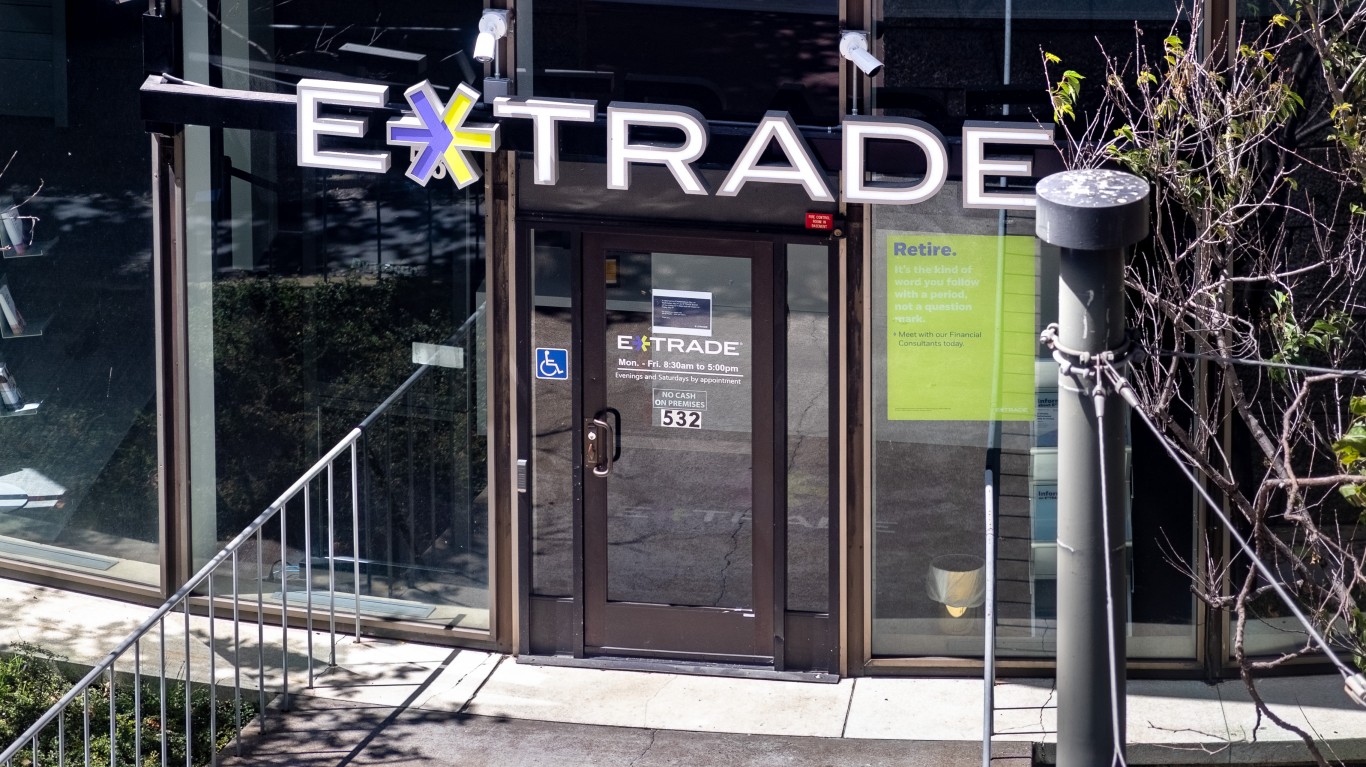

Social Security is a vital lifeline for millions of retirees. In fact, over 40% of retirees rely solely on Social Security for retirement.
The Social Security Administration (SSA) implements annual Cost-of-Living Adjustments (COLA) to help retirees keep pace with rising living costs. In 2024, due to very high inflation, Social Security beneficiaries saw a big jump in their benefits.
However, recent projections suggest a potentially very small increase in the 2025 COLA. While this is a positive sign for the broader economy, it presents a difficult challenge for retirees. Retirees may face financial strain, though slowing inflation could benefit the nation’s long-term health.
Of course, 2025 predictions officially don’t come out until October and are based on third-quarter inflation data. However, that doesn’t stop many people from predicting away and retirees from looking towards the future.
The Challenge for Retirees

The projected very small increase in the 2025 Social Security COLA raises an obvious concern for retirees, especially those who rely mostly on Social Security for their income. Unlike wages or other sources of income, Social Security benefits only increase based on COLA.
If the COLA doesn’t increase the amount necessary for retirees to afford groceries, housing, and other essentials, retirees can face significant financial strain. Many do not have significant sources of income beyond Social Security, so they’re reliant almost completely on COLA. If COLA doesn’t keep pace with inflation, many retirees may be forced to cut costs or dip into savings more than planned.
Of course, all retirees won’t feel this impact the same. Those with significant income outside of Social Security will be affected the least. You aren’t as reliant on Social Security income if you have a large savings account, investments, or pension.
The trouble arises mostly for low-income retirees and those with limited savings. These individuals will feel the pinch most acutely. For them, even a small decrease in purchasing power could mean making difficult choices between basic necessities like food and medication. While it’s easy to talk about theoretical people with theoretical problems, these are real retirees who may have real hardships if the COLA is too low.
Here are just some of the impacts they may experience:
- Strained Budget for Essentials: We aren’t talking about being unable to afford another vacation. We’re talking about being unable to afford groceries, housing, and healthcare essentials. Many retirees are on medications, and those medications cost money. If COLA isn’t sufficient, some retirees may have to make difficult choices.
- Reduced Food Intake: Some retirees may be forced to eat less or lower-quality food. Sadly, a bottle of soda costs less than a gallon of milk. These food choices may lead to potential health problems, especially for seniors with existing medical conditions.
- Delayed Medical Treatment: Due to the cost of medical care, some seniors may have to skip doctor’s visits, postpone medications, or delay necessary procedures. As you can imagine, this can have disastrous medical consequences.
- Cut Back on Utilities: Some retirees may be forced to live in uncomfortable or unsafe conditions. For instance, they may turn down the heat in the winter or rely less on air conditioning in the summer.
- Depleted Savings: Many retirees have savings beyond Social Security. However, these have to last throughout their whole retirement. A lower COLA could force retirees to dip into their savings more than originally expected, potentially putting their long-term financial security on the line.
- Mental and Emotional Stress: Financial strain can take a toll on mental and emotional well-being. Retirees may experience mental health problems such as anxiety and depression.
These problems can affect your family members and neighbors, and if you’re a retiree, you. Even a small decrease in purchasing power could force many seniors to choose between medications and other necessities.
What Does COLA Mean for the Economy?

While a lower COLA presents challenges for retirees, it could also signal a positive development for the overall economy. The projected decrease may indicate that inflation is slowing. Inflation is the general rise in prices for everything. When inflation is high, prices increase quickly, and families may struggle to keep up.
A lower COLA can reflect a stabilizing inflation, which is good for the economy. A more stable inflation potentially means:
- Reduced Pressure on Interest Rates: The Federal Reserve uses inflation when determining where to set interest rates. Slower inflation could allow the Fed to lower interest rates, stimulating borrowing and investment.
- Increased Confidence: Let’s be honest: no one feels confident in the economy when inflation is high. When you notice a big jump in your grocery bill, it can lower your confidence in investing and spending. Many people hold onto their cash just in case. Lower inflation can lead to more confidence, boosting economic activity.
- Improved Business Planning: When inflation is more stable, businesses can plan ahead more easily.
All that said, COLA does not directly affect inflation. Instead, inflation is utilized when the SSA sets COLA. Everyone makes mistakes, including the SSA. The SSA can set COLA below the actual inflation, which won’t have a positive effect on the economy (but it would have a negative effect on retirees).
Generational Impacts

While the focus of the COLA debate tends to be current retirees, it’s important to consider the ripple effect on younger generations. When COLA is adjusted and becomes too low, future retirees should consider saving more money to compensate for the lowered purchasing power.
That said, if COLA is appropriately lowered, it could indicate that inflation is slowing down. High inflation can make it challenging for future retirees to save for retirement. Therefore, a lower COLA may inadvertently mean it’s now easier for the younger generation to save.
Of course, that’s assuming the SSA set the COLA appropriately for inflation.
Witnessing the struggles of current retirees grappling with inflation and potentially poor COLA adjustments can discourage the younger generation from saving for retirement at all. They might face uncertainty about whether their savings will be enough to maintain their desired living standard.
You’d be surprised by the number of people who just don’t plan on retiring, often because they don’t think they’ll ever be able to afford it! Others may plan to retire later in the hopes of increasing their benefits, but we don’t recommend waiting until 70 to claim Social Security.
However, watching retirees struggle with a too-low COLA adjustment can also serve as a wake-up call. Younger generations may be more inclined to start saving early so that they aren’t reliant so much on COLA adjustments and Social Security. They may also look to mitigate the effects of inflation by diversifying their savings.
Many future retirees can learn from current retirees! When everyone is better prepared for retirement, it helps everyone. We have a whole Social Security guide to help you be better informed for just that reason.
Putting It All Together

The projected 2025 Social Security COLA is both good and bad, depending on how you look at it. Retirees could face financial hardship if the COLA does not keep pace with inflation. However, if the COLA is accurate, then inflation is slowing, which is good for everyone!
We won’t know how accurate the COLA is until after 2025 when we have accurate inflation data for the year.
While the SSA tries to match real inflation as much as possible, inflation rates vary across the country. COLA uses the National Consumer Price Index for Urban Wage Earners and Clerical Workers (CPI-W) data, which may not reflect all retiree expenses. COLA isn’t perfect.
If you’re receiving Social Security (or plan to), it’s important to be informed about how Social Security works. Otherwise, it can be hard to plan appropriately for retirement.
The Easy Way To Retire Early
You can retire early from the lottery, luck, or loving family member who leaves you a fortune.
But for the rest of us, there are dividends. While everyone chases big name dividend kings, they’re missing the real royalty: dividend legends.
It’s a rare class of overlooked income machines that you could buy and hold – forever.
Click here now to see two that could help you retire early, without any luck required.
Thank you for reading! Have some feedback for us?
Contact the 24/7 Wall St. editorial team.


